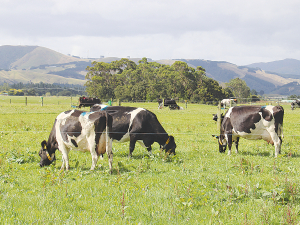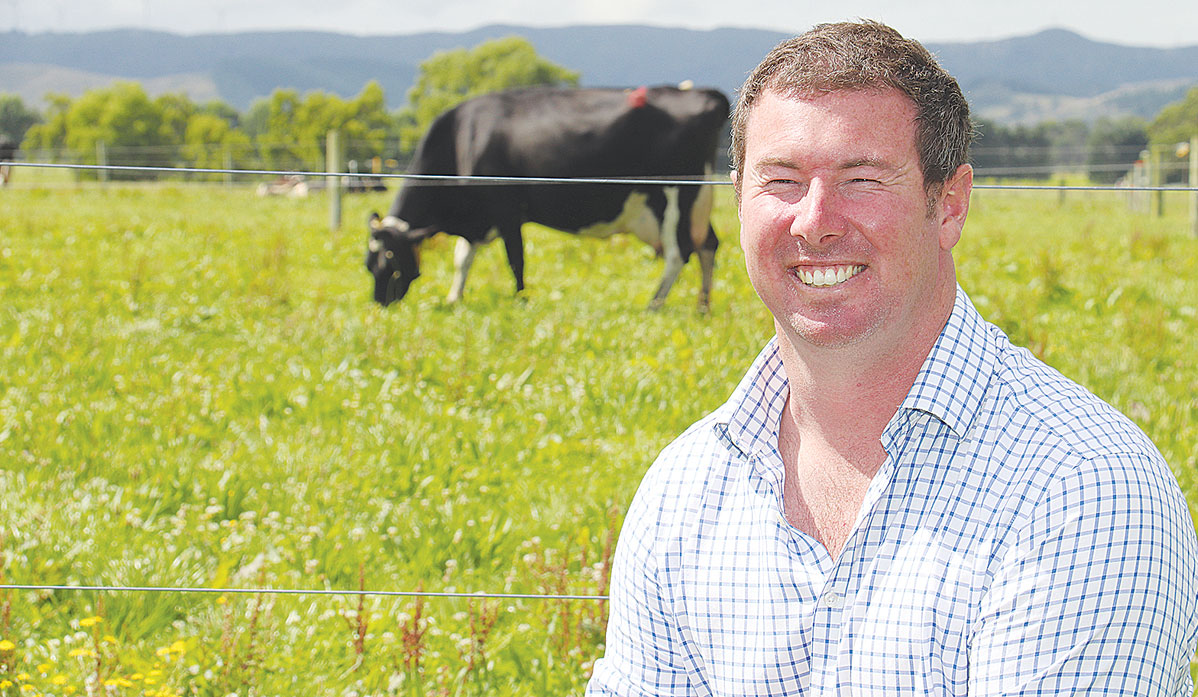NZ Catchment Groups Thrive with ‘Source to Sea’ Approach
The most successful catchment groups in NZ are those that have 'a source to sea' approach.
 The trials at Massey have involved running 80 cows over pasture which incorporates ecotain plantain.
The trials at Massey have involved running 80 cows over pasture which incorporates ecotain plantain.
Dairy farmers could save more than a billion dollars over a decade by incorporating plantain into their pastures.
This was revealed at special field day at Massey University in Palmerston North this month to highlight the benefits of dairy farmers using plantain as part of their pasture sward to reduce nitrogen leaching
Presently, only Ecotain plantain produced by PGG Wrightson has been proved to do this following four years of trials at one of the university’s farmlets.
The $22 million project, known as Plantain Potency Practice (PPP) programme, is funded by DairyNZ , MPI through the SFFF, PGG Wrightson Seeds and Fonterra, but work on the programme has been done by a number of other science institutes, including AgResearch, Lincoln University, Plant and Food Research, Manaaki Whenua, Fonterra, DairyNZ and Agricom.
The trials at Massey have involved running 80 cows over pasture which incorporates ecotain plantain.
DairyNZ chief executive Tim Mackle, who fronted a media event at Massey, says the results are exciting and show that by feeding cows plantain, nitrogen leaching on a dairy farm can be reduced by between 20-60%. But to achieve this there is one proviso – it requires somewhere between 24-45% of the farm to have plantain in the pasture. He says there is now robust scientific evidence that Ecotain plantain is an effective solution to help dairy farmers further reduce their environmental footprint and continue playing their part in improving water quality.
“We all want healthy freshwater to swim and play in, and dairy farmers can confidently use Ecotain plantain on-farm to support that,” he says.
 |
|---|
|
Dannevirke farmer Thomas Read is a strong advocate for plantain. |
Mackle says, of the contaminants that dairy farmers have to deal with, nitrogen is by far the biggest. He says the project is an integrated one and it’s important that local regional councils are involved and recognise the significance of the technology.
“You have to look at it in the context of the whole value chain to make sure all the issues have been solved, such as plantain not affecting production or milk quality, which it doesn’t.
“The great thing is the cost benefit side which only requires plantain to be added to the seed mix,” he says.
Mackle says more science is still needed to get clarity around persistence right across the dairying regions. He says the project excites him – especially seeing some of the best minds in agriculture, including farmers, working together to solve big issues.
The Meat Industry Association of New Zealand (MIA) today announced that Chief Executive Officer Sirma Karapeeva has resigned from the role.
The winners of the 2026 Hawke’s Bay/Wairarapa Dairy Industry Awards were announced at the annual awards dinner held at Copthorne Solway Park in Masterton on Thursday evening.
Environment Southland is welcoming this week’s decision by the Environmental Protection Authority (EPA) to approve the release of Blaptea elguetai, a leaf‑feeding beetle that will help control the highly invasive Chilean flame creeper.
This March, the potato industry is proudly celebrating International Women’s Day on 8 March alongside the International Year of the Woman Farmer, recognising the vital role women play across every part of the sector — from paddocks and packhouses to research, leadership, and innovation.
Fruit trader Seeka posted a record profit and returns to shareholders in 2025.
Recent weather events in the Bay of Plenty, Gisborne/Tairawhiti, and Canterbury have been declared a medium-scale adverse event.
OPINION: Staying with politics, with less than nine months to go before the general elections, there’s confusion in the Labour…
OPINION: Winston Peters' tirade against the free trade deal stitched with India may not be all political posturing by the…